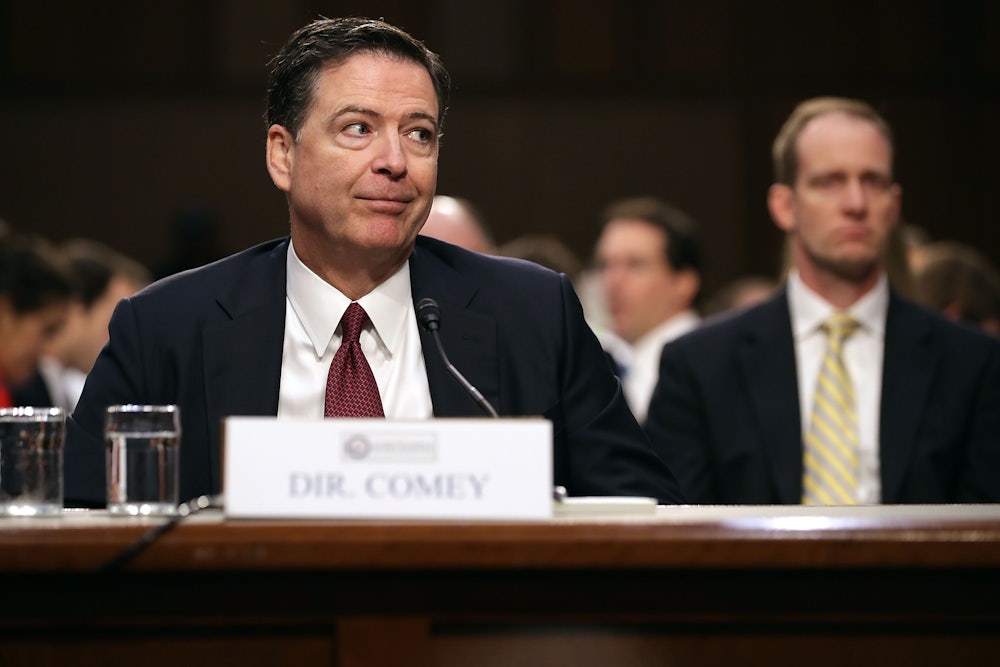On Wednesday, in a letter to new FBI Director Christopher Wray, Senators Chuck Grassley and Lindsey Graham revealed that, before Hillary Clinton had been interviewed by the agency, former FBI Director Comey had begun preparing a statement clearing her of breaking the law for conducting State Department business on a private email server. “Conclusion first, fact-gathering second—that’s no way to run an investigation,” Grassley and Graham wrote. “The FBI should be held to a higher standard than that, especially in a matter of such great public interest and controversy.”
Unsurprisingly, conservative media went ballistic: Here was proof that Comey was not the upstanding and independent lawman that he pretends to be, that Clinton only got away scot-free because of the system, and that Trump was right to remove Comey from his post. Even more unsurprisingly, Trump seized on the revelation to zing Comey once more:
Wow, looks like James Comey exonerated Hillary Clinton long before the investigation was over...and so much more. A rigged system!
— Donald J. Trump (@realDonaldTrump) September 1, 2017
There are a few problems with this. First, as Comey’s good buddy Ben Wittes pointed out on Twitter, Comey may have simply been preparing for a likely outcome:
This may come as a shock to Grassley and Graham and Trump, but judges sometimes do a memo/draft about an opinion before oral argument. /7/
— Benjamin Wittes (@benjaminwittes) September 1, 2017
In other words, it’s not necessarily out of the ordinary.
But the other problem is that it contradicts Trump’s own reasoning for firing Comey in the first place. The initial justification for Comey’s firing was contained in a letter from Deputy Attorney General Rod Rosenstein, which criticized Comey for overstepping his bounds as FBI director and for publicly announcing the reopening of the Clinton investigation days before the election. So Trump is attacking Comey for both exonerating Clinton and going after her.
Of course, Rosenstein’s letter was always a flimsy pretext. Comey was obviously fired for not shutting down the Russia investigation after Trump asked him to. But that flimsy pretext also served as a defense against the allegation that Trump obstructed justice by firing Comey.
